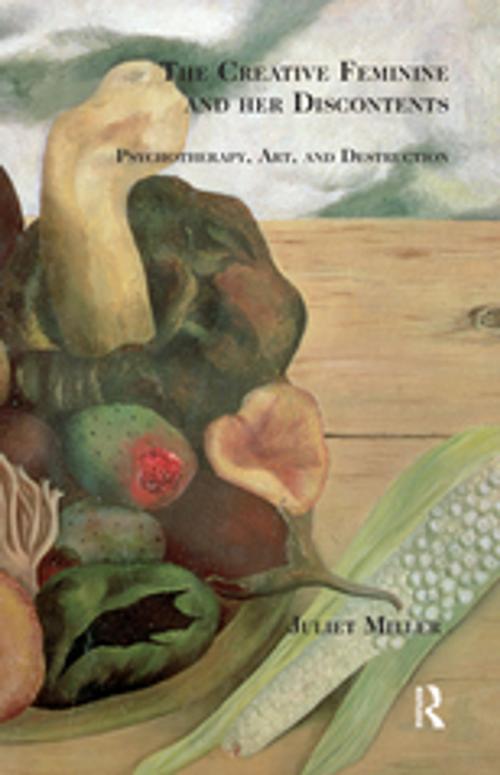The Creative Feminine and her Discontents
Psychotherapy, Art and Destruction
Nonfiction, Health & Well Being, Psychology, Mental Health| Author: | Juliet Miller | ISBN: | 9780429920417 |
| Publisher: | Taylor and Francis | Publication: | April 24, 2018 |
| Imprint: | Routledge | Language: | English |
| Author: | Juliet Miller |
| ISBN: | 9780429920417 |
| Publisher: | Taylor and Francis |
| Publication: | April 24, 2018 |
| Imprint: | Routledge |
| Language: | English |
The Creative Feminine and her Discontents, Psychotherapy, Art, and Destruction, is a look at creativity from a woman's perspective. By looking at artistic endeavour, mothering and psychotherapeutic relationships, Juliet Miller considers how a patriarchal world distorts the channels through which women discover their own creative voices. She argues that the dynamics of female creativity are more multi-layered and conflicted for women for a variety of historical, cultural and archetypal reasons and suggests that an attack on the creative feminine has been exacerbated by the history and teaching of psychoanalysis and psychotherapy. Miller looks to the artistic community to discover new ways for the creative feminine to grow and assesses how ideas of destruction and anarchy are crucial for the expression of a feminine self. The work of two contemporary sculptors, Cornelia Parker and Louise Bourgeois, is explored to show how there can be authentic relationships to creativity through the ideas of deconstruction and reconstruction in their work. This book will interest psychotherapists and analysts and both women and men interested in their own relationship to their creativity.
The Creative Feminine and her Discontents, Psychotherapy, Art, and Destruction, is a look at creativity from a woman's perspective. By looking at artistic endeavour, mothering and psychotherapeutic relationships, Juliet Miller considers how a patriarchal world distorts the channels through which women discover their own creative voices. She argues that the dynamics of female creativity are more multi-layered and conflicted for women for a variety of historical, cultural and archetypal reasons and suggests that an attack on the creative feminine has been exacerbated by the history and teaching of psychoanalysis and psychotherapy. Miller looks to the artistic community to discover new ways for the creative feminine to grow and assesses how ideas of destruction and anarchy are crucial for the expression of a feminine self. The work of two contemporary sculptors, Cornelia Parker and Louise Bourgeois, is explored to show how there can be authentic relationships to creativity through the ideas of deconstruction and reconstruction in their work. This book will interest psychotherapists and analysts and both women and men interested in their own relationship to their creativity.















